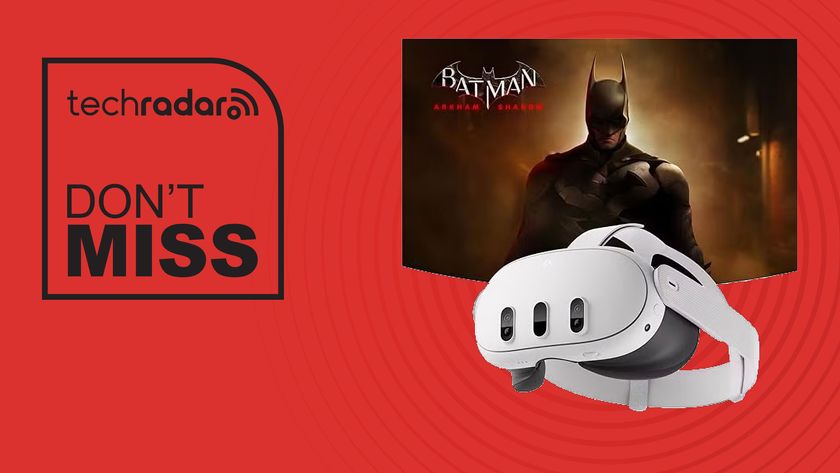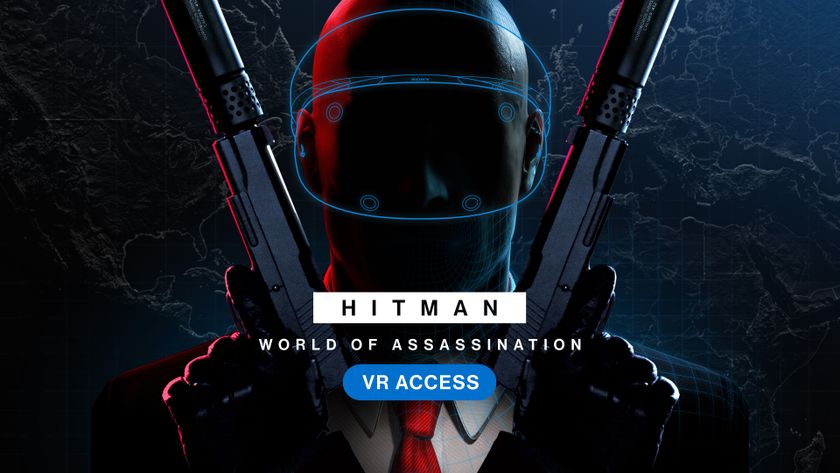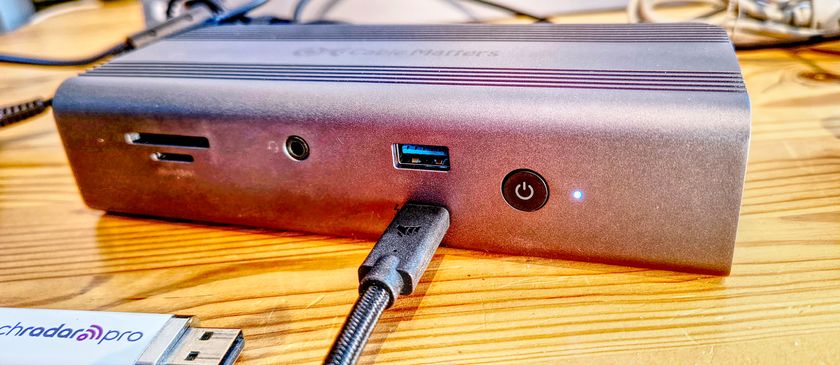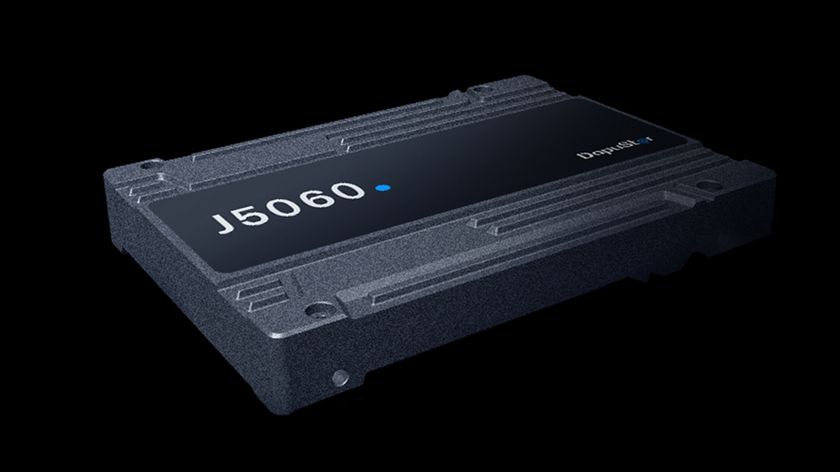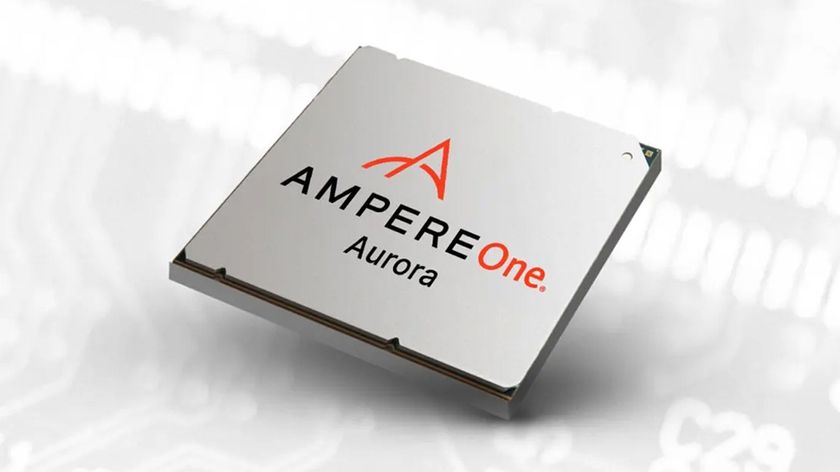Oculus Rift in space: gaming's final frontier
VR wars are about to kick off
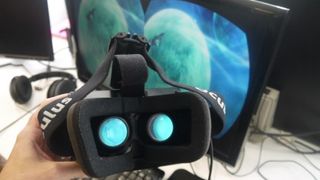
These words echo resoundingly as later on we find we're as far removed as intergalactic warfare as possible. Instead we're walking around a small house. While the headset and joystick setup is the same, the experience is vastly different.
Observing various ornaments as we move around, we feel like we can reach a hand out and touch them. Doing so, however, does spoil the illusion. This might be a niggling thing - and something easily solved by the likes of the IGS Glove - but the feeling of nausea that's been creeping in is harder to ignore.
It's quite possibly Oculus's biggest obstacle right now. By comparison, spinning through space felt oddly normal. But there we were sat in a cockpit with little to differentiate it from the real thing.
Walking around on the ground, however, is a much more tangible experience. As we move, our brain tries to comprehend why our legs remain motionless, and that familiar dizziness-sickness begins to set in.
"I think motion sickness is always going to be a problem with VR because it's tricking your brain and when you try to trick the human brain, our brains have a habit of finding ways to make you motion sick," says Molyneux.

"As soon as you enter motion sickness, that's it. It's over for you. you've got to rip the thing off."
It feels like something that has no quick fix solution, but it's something that developers are working hard to overcome. "The Valve guys have done a really good job of some calibrations for eye separation and things like that," says Born Ready Games' James Brooksby. "The more you can convince the brain the better. But as long as you can maintain a strong frame rate."
Get daily insight, inspiration and deals in your inbox
Sign up for breaking news, reviews, opinion, top tech deals, and more.
Eyes forward
The trajectory of Oculus Rift may be limited by this, although the HD version of the headset may play a big part in solving the problem.
And if Oculus turns out to be better suited for space exploration, that's no bad thing. Rift is ready to take off. People are hearing about it, people are getting to try it, and perhaps more importantly, people are throwing a lot of money at it.
Brooksby is convinced that for the first time, people are truly ready for virtual reality.
"My son's eleven, and the kid next door is ten," he says. "And they were in the garden chatting, and the kid said 'I'm getting this new thing' and he was trying to describe it. And through his description it became clear that he was talking about the Oculus. He said 'You put it in your face and you can see all these worlds.'"
The next door neighbour's ten year old kid knows about it," he reiterates, laughing. "It's obviously going further than we possibly imagined."
Wanna know more about the Oculus Rift? Check out our handy guide:
Hugh Langley is the ex-News Editor of TechRadar. He had written for many magazines and websites including Business Insider, The Telegraph, IGN, Gizmodo, Entrepreneur Magazine, WIRED (UK), TrustedReviews, Business Insider Australia, Business Insider India, Business Insider Singapore, Wareable, The Ambient and more.
Hugh is now a correspondent at Business Insider covering Google and Alphabet, and has the unfortunate distinction of accidentally linking the TechRadar homepage to a rival publication.

